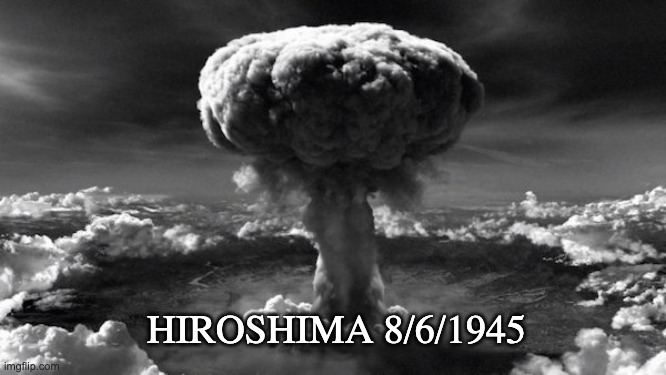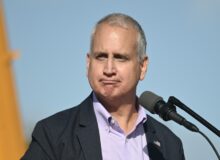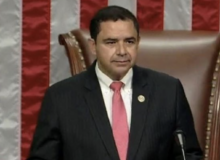g
In the eponymous new film, J. Robert Oppenheimer is haunted by the enormous consequences emanating from a weapon he helped create.
I worked for several years as a researcher at a military history museum and have traveled to major World War II museums, including the national ones in New Orleans and Los Alamos. Let me do justice to the topic in under 900 words.
Eight decades ago, the United States was engaged in a savage war where each day brought more suffering and devastation to soldiers and citizens across Asia. The best thing that could happen was ending the war as soon as possible; the atomic bomb brought the struggle to a decisive, rapid conclusion. Odd as it seems to say, the bomb was the great peacemaker.
Records show the War Department and President Harry Truman estimated casualty rates of a land war in Japan could exceed 1 million. Many of us today would not exist because our fathers and grandfathers would have been slaughtered in the Far East.
There was every reason to expect ferocious Japanese resistance. Of the 70,000 Marines fighting at Iwo Jima beginning in February 1945, nearly 7,000 were killed and another 20,000 wounded. Almost all the 20,000 Japanese soldiers on the island, ordered by their commander to kill ten Americans before dying themselves, fought to the literal death.
A month later, Okinawa witnessed the same grisly story: the U.S. loss rate was an astounding 35%. Compared to the War on Terror, where casualty rates rarely exceeded 1% even in the worst battles, these numbers are hard to fathom.
The U.S. Navy also lost 5,000 sailors and 36 ships early due to Japanese kamikaze attacks.
Given Tokyo’s abominable record, Americans foresaw an unimaginably bloody fight ahead during the summer of 1945, requiring not only an invasion but a further interminable struggle against Japanese armed forces.
Whether it was 50,000 or 500,000, it’s unquestionable that Truman’s decision to drop the bomb saved American lives. As the leader of the free world, this was his prime responsibility, and this alone supports dropping the bombs being the right call.
As a short aside, the atom bombs weren’t much different from the raids already undertaken by Curtis LeMay. The major general’s low-altitude firebombing proved effective. The raid on Tokyo in March 1945 killed more than 100,000 people. LeMay’s bombers burned down nearly 200 square miles of 66 Japanese cities, an average of nearly half of the targeted area.
There’s no moral case against atom bombs that don’t apply to firebombing. So, what would faux peaceniks propose if both of these tactics were left off the table?
There also was a blockade with U.S. submarines kneecapping the Japanese economy via attacks on the country’s shipping. Japan was facing mass starvation.
Our new bombing campaign near the war’s end went after the Japanese rail system, which would have made the situation immediately more dire. But Japan still refused to surrender.
How about letting the Soviets do it? This would have geopolitical downsides for the future and wasn’t a moral option, either.
The Soviets captured about 3 million Japanese nationals. The dead and missing among this group — less than half being military — numbered around 350,000. This exceeds the toll attributed to the atomic bombs.
Do not forget the cost of the continued war throughout the region. In March 1945, for example, more than 200,000 noncombatants were killed across Asia, an average of 8,000 people every single day. Those opposing the atomic bomb have a responsibility to explain why they’d permit so many more to die.
If we hadn’t dropped the bomb, hadn’t engaged in the firebombing or the blockade, and hadn’t waited for the Soviets, then you’re back to a U.S. invasion.
The cost of American casualties aside, again, look to the horrors of Okinawa. Credible estimates of civilian deaths went from 100,000 or 150,000. Are neo-isolationists content with repeated land campaigns to bring Tokyo to heel? The anti-atom bomb position is effectively a pro-war stance.
There have been lamentable attempts to argue that Japan would soon quit the war for other reasons. However, anyone suggesting Tokyo’s surrender would occur sans atomic bombs cannot point to credible supporting evidence from Japanese leadership.
In his message ending the war, Emperor Hirohito spoke of a “new and most cruel bomb, the power of which to do damage is indeed incalculable, taking the toll of many innocent lives.”
The attack on Nagasaki showed that we had more than one bomb and would not be dissuaded from using it. There is no way around that defeating Japan required a historic calamity — whether from the air or the ground, sudden or lengthy.
Imperial Japan was inhumane and remorseless. Its attacks on Pearl Harbor and treatment of prisoners were evil. Everywhere it went, Japan brought barbarous cruelty, including perhaps killing as many as 20 million Chinese. And, when pushed onto the defensive, it resolved to fight like a suicide cult.
In the 1930s and 40s, Imperial Japan was, along with Nazi Germany, a destroyer of the world. It had to be stopped. After years of struggle, Oppenheimer’s genius finally did it, bringing peace where there had been only anguish and violence.
h






